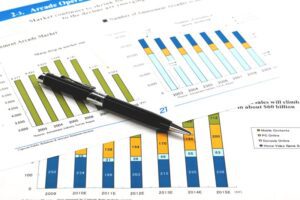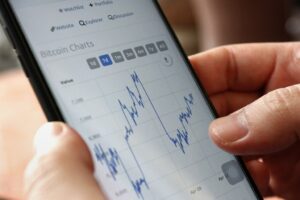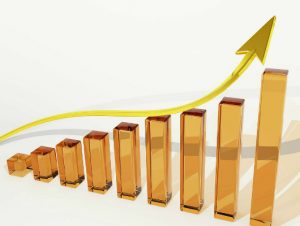
The consumer sentiment index (CSI) of Ukrainians improved by 1.1 points in July to 73.2 points on a 200-point scale, according to a study by the Info Sapiens agency.
“The main indices stabilized in July and statistically changed little compared to June 2022. The current position index has significantly slowed down the rate of decline, and the economic expectations index even showed an upward trend. At the same time, unemployment, inflation and devaluation expectations are worsening,” commented agency situation.
According to the study, the current position index fell by 1.1 points to 37.2 points. In particular, the current personal financial situation index dipped by 2.9 points last month to increased by 0.8 p. – up to 43.8 p.
In addition, the index of economic expectations (EI) in July increased by 2.5 points – up to 97.2 points. In particular, the index of the expected development of the country’s economy in the coming year increased by 2.2 points – up to as for the next five years decreased by 2.5 percentage points – to 133.9 percentage points.
Reportedly, the index of expected changes in personal financial situation increased by 7.7 points to 78.8 points.
The Info Sapiens report also indicates that the July index of the expected unemployment dynamics in Ukraine increased (worse – IF-U) by 3.7 points, to 146.4 points, and the inflation expectations index – by 0.6 points. , up to 183 p.
At the same time, Ukrainians’ expectations regarding the hryvnia exchange rate worsened in the next three months: the index of devaluation expectations rose by 5.4 percentage points to 157.5 percentage points.
The study of consumer sentiment is carried out by interviewing 1,000 people aged 16 and over on a representative sample of gender, age, and size of the settlement. The statistical deviation does not exceed 3.1%. The study has been conducted since June 2000: earlier it was conducted by GfK Ukraine, and since 2019 by Info Sapiens.

The Bloomberg Commodity Spot commodity price index has already fallen by 20% since it reached a historical record a month ago.
The calculation of the indicator includes 23 futures contracts for energy carriers, metals and agricultural crops.
Despite ongoing supply disruptions, prices for everything from gasoline to wheat are falling on concerns that a stagnating global economy will weigh on demand. This may provide some help in the fight against high inflation in many countries, Bloomberg notes.
Fears are growing in the US that the Federal Reserve will not be able to tame the highest inflation in four decades without plunging the economy into recession. The sharp rise in the US dollar, which makes buying raw materials more expensive for representatives of other countries, also affected commodities traded in the United States. Hedge fund bets that commodities will rise in price have fallen to their lowest level in almost two years.
However, a recession is a “highly anticipated issue” and markets have “clearly overreacted” by bringing commodity prices back to pre-war levels in Ukraine, said portfolio manager Pacific Investment Management Co. Greg Sharenow. Supplies of commodities such as oil remain limited and vulnerable to disruption, he said. The expert expects a resumption of demand in the coming months against the backdrop of China’s economic recovery.

Consumer Confidence Index (CCI) of Ukrainians, after rising by 1.7 points in June, decreased by 1.6 points in July – to 71.3 points on a 200-point scale, according to a study by Info Sapiens agency.
“Most components of the Consumer Confidence Index in July 2021 are stable and have not changed compared to June. However, there is a tendency to reduce the Index of Expected Changes in Personal Financial Standing, which may be associated with an increase in gas prices,” the agency’s website says.
According to the study, Index of the Current Situation (ICS) has increased and equals 68.2, which is 0.2 points higher than in June. Index of Current Personal Financial Standing equals 61.2, which is 0.2 points higher than the indicator in June. Index of Propensity to Consume increased by 0.2 point to the level 75.2 points.
In July, Index of Economic Expectations (ІЕE) equals 73.3, which is 2.9 points lower that the level of this indicator in June. Index of Expected Changes in Personal Financial Standing equals 75.3, which is 4.1 points lower than in June. Index of Expectations of the Country’s Economic Development over the Next Year equals 65.9 which is 0.9 points lower than the level of this indicator in June and Index of Expectations of the Country’s Economic Development over the Next 5 Years decreased by 3.6 points compared to last month and equals 78.8.
Info Sapiens indicates that the indicator of Index of Expectations of Changes in Unemployment has decreased by 1.2 points and equals 137.4 and Index of Inflationary Expectations increased by 3.8 points and equals 192.
Expectations of Ukrainians regarding the hryvnia’s exchange rate in the coming three months have improved: Index of Devaluation Expectations increased by 11.4 points and equals 139.4.

Ukraine took fourth place in the rating of the global cryptoasset perception index in 2021, compiled by the U.S. analytical company Chainalysis.
According to the data on the Chainalysis website, the first three places were taken by Vietnam, India and Pakistan. Kenya took the fifth place. The United States came in eighth, China 13th.
The analytical report of the company says that Ukraine has the largest volume of transactions with crypto assets among market participants in the world. In addition, Ukraine entered the top ten countries with the highest bitcoin earnings in 2020.
The Digital Transformation Ministry, commenting on this rating, said that the fourth place, which Ukraine took in the rating, indicates the desire of citizens to use crypto assets and the need to create mechanisms for the further development of the crypto industry in the country.
“Due to the data of the blockchain company Chainalysis, we know that Ukrainians actively use cryptoassets and know how to make money on them. One of the priority goals of our ministry is to provide all the necessary conditions for the operation and development of crypto companies in Ukraine. Virtual assets will strengthen the position of Ukraine as a jurisdiction on the international map,” Deputy Minister for IT Development Oleksandr Borniakov said.

The Consumer Confidence Index (CCI) equaled 77.2 in April, which was 9.4 points higher than in March (the values of indices can vary from 0 to 200), according to the survey conducted by Info Sapiens.
“The positive trend of consumer confidence corresponds to the improvement of the business expectations… It is also important to note that the positive dynamics may be enhanced by changing the survey method: in April, due to the lockdown the survey was conducted by telephone, but this method attracts a bigger share of wealthy population compared to face-to-face interviews,” Info Sapiens said on its website on Wednesday.
According to the survey, Index of the Current Situation (ICS) have not changed significantly and equals 60.0, which is 1.1 p. higher than in March. The components of this index have changed as follows: Index of Current Personal Financial Standing equals 55.3, which is 0.6 points higher than the indicator in March; Index of Propensity to Consume increased by 1.7 p. to the level 64.8.
In April, Index of Economic Expectations (ІЕE) have increased and equals 88.6. The components of this index have changed as follows: Index of Expected Changes in Personal Financial Standing equals 92.2 which is 13.0 points higher that the level of this indicator in March; Index of Expectations of the Country’s Economic Development Over the Next Year equals 71.0 which is 10.5 points higher that the level of this indicator in March; Index of Expectations of the Country’s Economic Development over the Next 5 Years increased by 21.0 points compared to last month and equals 102.5.
In April, the indicator of Index of Expectations of Changes in Unemployment is stable on the level of 148.6. Index of Inflationary Expectations slightly decreased and equals 185.1.
Expectations of Ukrainians regarding the hryvna’s exchange rate in the coming three months have worsened: Index of Devaluation Expectations increased by 10.9 p. and equals 145.3.

Ukraine in 2020 climbed from 80th to 63rd place in the Social Progress Index among 163 countries with score of 73.38 points versus 66.97 in 2019, according to the index data.
“It is important that in the year of the pandemic, Ukraine improved its position in this global ranking. This means that at least part of the challenges we responded correctly,” Minister of Social Policy Maryna Lazebna told Interfax-Ukraine.
According to the study, the average score of the index among all studied countries is 64.24 points. Last year, the group of countries with a very high standard of living and a moderately high quality of life narrowed from 104 to 71.
“I would also like to note that among 15 countries with a similar level of GDP per capita in terms of purchasing power parity, Ukraine ranked fifth in terms of this index,” Lazebna said.
In addition, the minister noted the high assessment of Ukraine in the areas of equal access for women and men to basic knowledge, protection of property rights for women, equality of political power by gender.
“Also, Ukraine has demonstrated high rates of vulnerable employment, secondary school attainment, availability of affordable mobile telephone subscriptions, access to electricity,” the head of the Ministry of Social Policy said.
However, Ukraine showed significantly worse results in comparison with other countries in terms of life expectancy at 60 years (117th place among 163 countries), and also lags behind in a number of other indicators.
“According to the results given by the authors of the index, Ukraine has high inequality of political power by socioeconomic position, corruption, high levels of greenhouse gas emissions, large number of outdoor air pollution attributable deaths, high number of premature deaths from non-communicable diseases,” Lazebna said.
The Social Progress Index (SPI) measures the extent to which countries provide for the social and environmental needs of its citizens. Fifty-four indicators in the areas of basic human needs, foundations of well-being, and opportunity to progress shows the relative performance of nations. Under the technical guidance of Professors Michael Porter from Harvard Business School and Scott Stern from the Massachusetts Institute of Technology, the group formed a U.S.-based nonprofit called the Social Progress Imperative and launched the Social Progress Index for 50 countries in 2013.